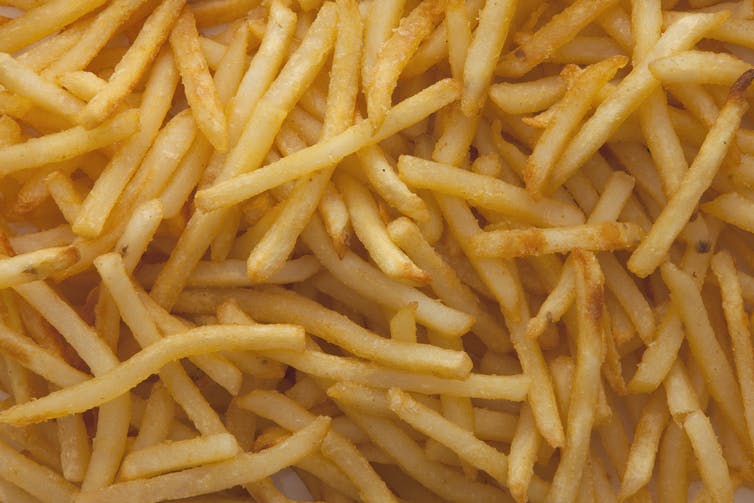Every year millions of Americans try to cut down on ultra-processed foods – industrial formulations that are typically high in added fat, refined carbohydrates or both. Think cookies, cakes, potato chips and pizza.
For many, the desire to change what they eat is triggered by concerns about potentially life-threatening health conditions, like diabetes and heart disease. The impact of diet on health is not a small problem. In fact, a recent multidisciplinary commission of 37 leading scientists from around the globe identified unhealthy diets as a greater risk to human health than unsafe sex and alcohol, drug and tobacco use combined.
Many people know that most ultra-processed foods are not healthy. But the goal of cutting down on them can be so challenging that the majority of these attempts fail. Why?
In my Food and Addiction Science and Treatment Lab at the University of Michigan, my colleagues and I are investigating one largely overlooked factor: These ultra-processed foods may be addictive, sharing more in common with tobacco products than with whole foods like apples or beans.
Addicted to ultra-processed foods
I’m a clinical psychologist who studies addiction science, obesity and disordered eating. During my training at Yale University, it became clear to me that many people were showing classic signs of addiction in their relationship with ultra-processed foods – things like loss of control over consumption, intense cravings and an inability to cut down in the face of negative consequences.
So my colleagues and I created the Yale Food Addiction Scale. It’s a measure that applies the American Psychiatric Association criteria used to diagnose other addictive disorders to identify people who may be addicted to ultra-processed foods.
Based on our current estimates, 15% of Americans meet the threshold for food addiction, which is associated with diet-related disease, obesity and poorer quality of life. This prevalence is remarkably in line with that of addictions to other legal and accessible substances. For instance, 14% of people in the U.S. meet the criteria to be diagnosed with alcohol use disorders.

Some foods are perfectly formulated to be irresistible.
Mike Kemp via Getty Images
It is clear from our research that people do not experience this addictive pull from all foods. Ultra-processed foods that have artificially high levels of fat and refined carbohydrates like sugar and white flour are those that people eat addictively. For example, chocolate, ice cream, French fries, pizza and cookies are some of the foods that people find most addictive. Not surprisingly, people report that they’re very unlikely to lose control consuming broccoli, beans and cucumbers.
But can these ultra-processed foods really be considered addictive? Or are people just overindulging in something they like? To help us answer those questions, my colleagues and I have turned to one of the last big…



